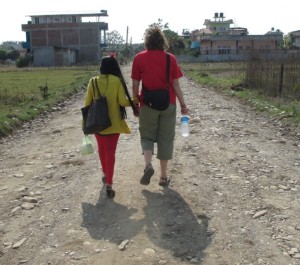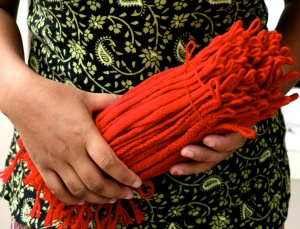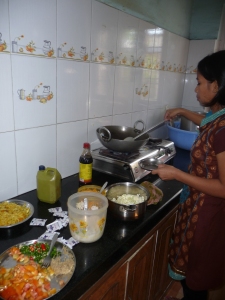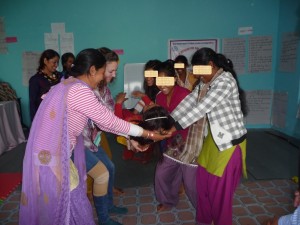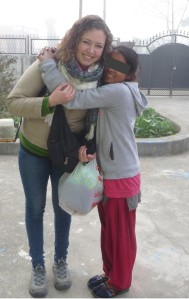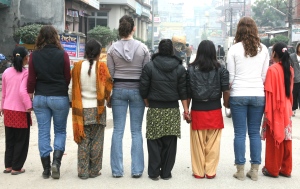When I was in Nepal, my roommate, Purnima, and I would take walks or runs in the morning before the sun came up. Having a partner makes it more enjoyable and keeps me accountable. One day we took a longer walk with a couple other girls. Our destination was the sewing shop of one of the graduate rescued girls. Sounds like a good idea, right? However, I failed to have my usual cup of coffee before we left.
It took over an hour to get to the shop. We had fun talking, singing, looking at the scenery, and taking photos. It hit me we had at least an hour to walk back, and I could feel a caffeine headache coming on. Looking in my pockets, I found 35 Nepali rupees (equal to about 35 American cents). This would cover the cost of almost nothing, and there aren’t little coffee shops on the corners of rural Nepal… Yikes!
We visited a while longer with the owner of the sewing shop. Thankfully she served us Nepali tea and sweet crackers. The traditional tea in Nepal is delicious, but has little caffeine. What was I going to do? After what seemed like an eternity, we started our walk home. I mentioned to my roommate that I had a throbbing headache. “Think about something else”, “Practice a Nepali song”. I tried several different things, though nothing worked. Not only was this painful, but also incredibly embarrassing and humbling! Here I am, an American dealing with a headache because I didn’t have my morning coffee. These girls deal with difficulties that I cannot fathom, and my biggest concern is my caffeine headache. Can we say 1st World Problem? How pathetic!
After a while, we walked past a little shop and I noticed glass bottles of Coke. Could these be 35 rupees or less? My roommate asked and they were 30 rupees a piece. I got the Coke and had a little leftover for small candies for the girls. What a relief! Who knew I would enjoy the best Coke ever in the countryside of Nepal?
This may sound like a silly story, and actually is! Surprisingly, this is one of my most treasured memories of Nepal. Walking with the Nepalese girls to the sewing shop was a bonding experience, one I cherish to this day.


